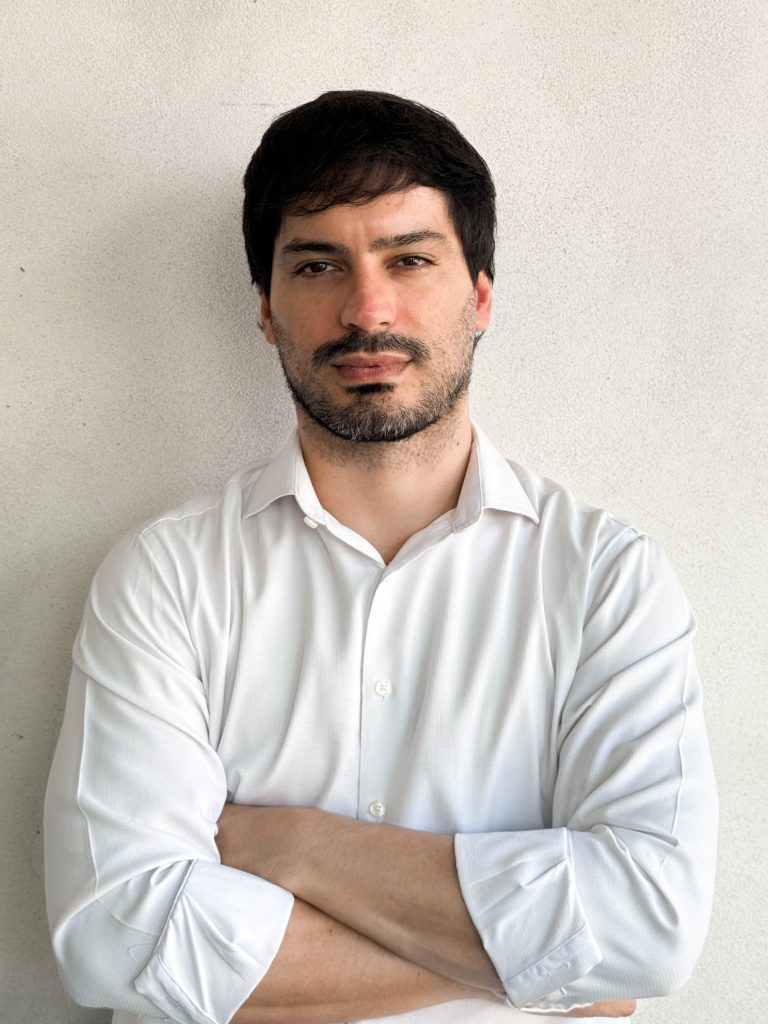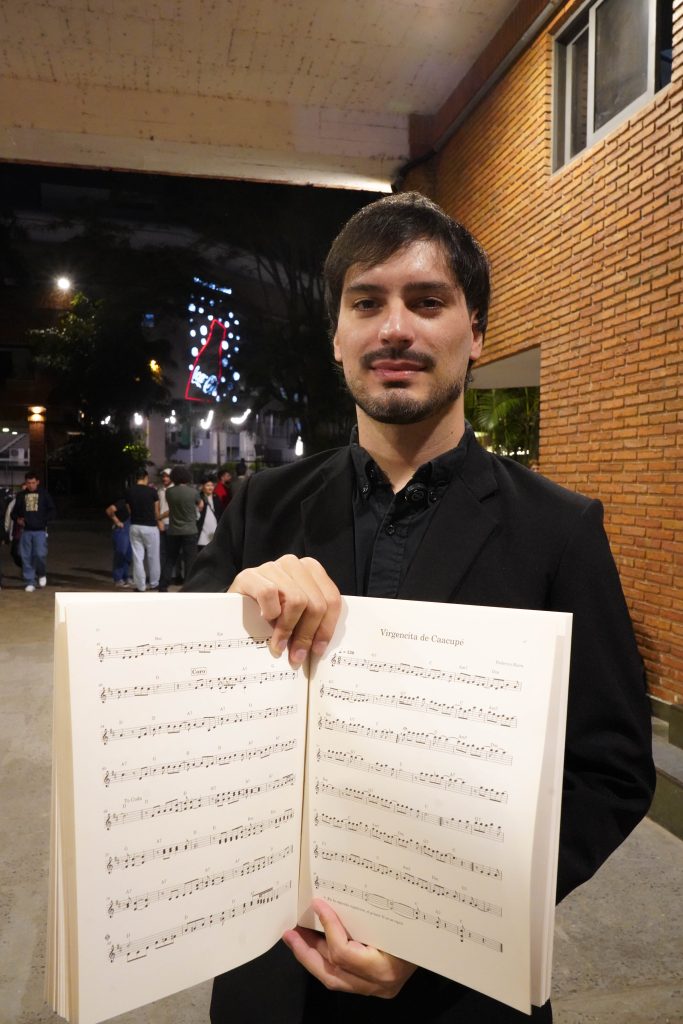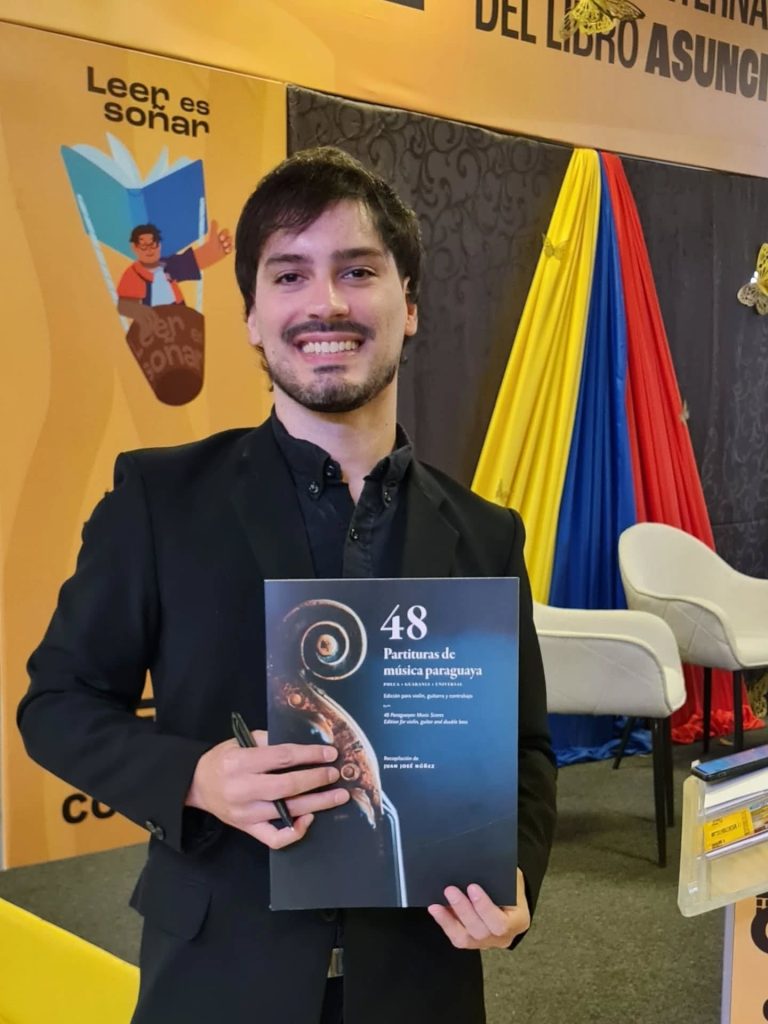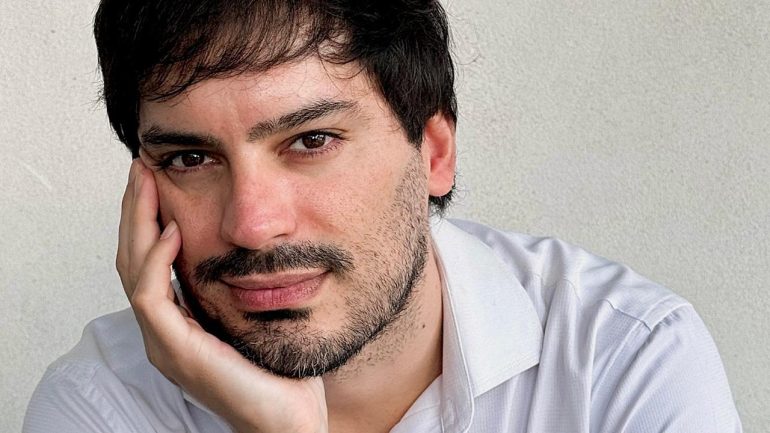Juan José Núñez wrote a book unlike any other: 48 Partituras de Música Paraguaya, the first Paraguayan sheet music book to meet international publishing standards, ready for libraries, music shops, and stages worldwide. By doing so, the Paraguayan musician became the first to transform the country’s beloved folk melodies into an academic format for violin, guitar, and double bass.
48 Partituras de Música Paraguaya is the result of nearly two years of knocking on doors, tracing ageing relatives of forgotten composers, and sifting through yellowed manuscripts whose ink had faded. How did this extraordinary project come about?
A life shaped by music
Music entered Juanjo’s life not with fanfare, but quiet persistence. Growing up in Caacupé, nestled in Paraguay’s hills, he was only ten when he joined Sonidos de la Tierra (Sounds of the Earth), a grassroots project led by the visionary Maestro Luis Szarán.
“I started with Sonidos de la Tierra (Sounds of the Earth),” he recalls. “We were not trained as professionals. The aim was to give children a chance to learn the basics: violin, cello, double bass.” But those first notes lit a spark. “What began as curiosity, watching cartoons, fiddling with sounds, soon became a calling. I married music very young, so to speak.

Juan José Núñez: a dream coming true
In 2021, Juan José Núñez earned a scholarship to study at the Royal Irish Academy of Music, Trinity College Dublin’s Conservatoire. “The process was intense,” he remembers. “Documents, auditions, theory tests, interviews… each stage was a filter. When I got accepted, it was the proudest moment of my life.” Ireland transformed him. But returning to Paraguay meant starting again.
Transcribing music by ear
In September 2023, Juan Ignacio rang Juanjo with news: a new folkloric orchestra was forming. Juanjo asked what he could play and chose Alma y Violín (Soul and Violin) by Lorenzo Álvarez, his first transcription.
Just a month later, the idea for the book emerged, not from ambition, but out of need. “I was asked to perform Tobatí, Pueblo de Amor (Tobatí, Town of Love),” he recalls, “but there was no sheet music. So, I transcribed it by ear, and shared it on MuseScore.”
What began reluctantly turned into a mission. “I am obsessively meticulous,” he laughs. “Transcribing is stressful, but I wanted it perfect.” One piece led to another. Eventually, his friend Juan Ignacio, trained at the Moscow Tchaikovsky Conservatory, told him: “Juanjo, this could be a book.” “It was like a light switched on,” Juanjo says. “That’s when I truly began exploring what Paraguayan music is.”
More than a collection
The result, 48 Partituras, is more than a collection; it is a cultural seed. By adapting traditional repertoire into academic formats, Juanjo created a tool for conservatoires, schools, and orchestras worldwide. His work not only preserves heritage but also invites research and inspires others to reconnect with Paraguay’s musical roots. “If we do not preserve our music, we lose part of who we are,” he says. “I hope this book encourages others to keep digging.”
Officially registered with an ISMN code, 48 Partituras is the first Paraguayan sheet music book to meet international publishing standards, ready for libraries, music shops, and stages worldwide. But for Juanjo, the greatest success lies in its shared purpose: “This book doesn’t belong to me,” he says. “It belongs to all Paraguayans.”


A journey through forgotten history
What followed were nearly two years of solo research. He knocked on doors, traced ageing relatives of forgotten composers, and sifted through yellowed manuscripts whose ink had faded.
“I spent a year looking for one composer’s descendants. When I found them, they gave me his original scores. The paper was so old it stained my hands.”
One key discovery was Fantasía Capricho (Fantasy Caprice), a violin piece by Fernando Centurión, written over a century ago. Forgotten and absent from archives, Centurión studied in Brussels and Paris, pioneering classical music in Paraguay.
His father, Crisóstomo, was a political and literary figure, educated in London under Carlos Antonio López. For Juanjo, recovering Fantasía Capricho was not just a find; it was an act of cultural resistance.
Just a rucksack, and belief
“This is noy only about a violin piece. It is about recovering memory, honouring the unheard, and building bridges between forgotten legacies and the future. Being a researcher often means staying up at 3 AM in a cold terminal, with just a rucksack, and belief.”
Now, back in Caacupé, Juan José Núñez teaches violin and dreams of his next project. 48 Partituras is more than a book; it is a cultural rescue mission, a love letter to Paraguay’s musical soul. “These 48 pieces are just a drop in the ocean. There are thousands more. This is work for a lifetime. This book isn ot the end,” he says, smiling. “It is just the beginning.”
To order a copy of 48 Partituras de Música Paraguaya, contact Juanjo via WhatsApp.


